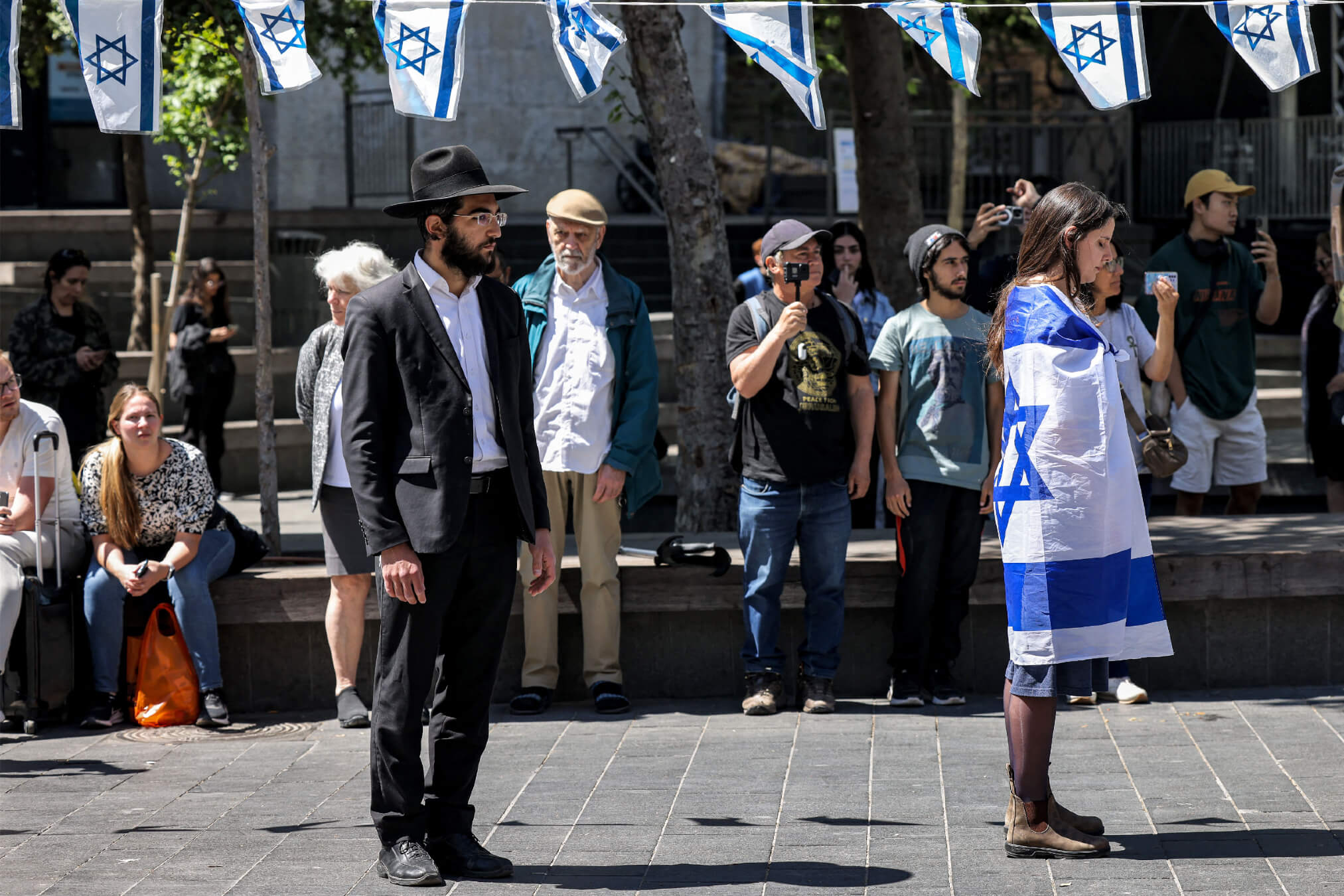Israel will add diaspora victims of antisemitism to those mourned on Day of Remembrance
The U.S.-based Ruderman Family Foundation lobbied for the change, which was announced the day before a deadly attack on a Tunisian synagogue

People stop and stand in silence in Jerusalem on April 25, 2023, as sirens wail for two minutes on Israel’s Day of Remembrance.
Israel’s Ministry of Diaspora Affairs has decided that non-Israeli Jewish victims of antisemitic terror attacks outside Israel should be officially mourned each year on Yom HaZikaron, the Jewish state’s national day of remembrance.
The Ministry of Diaspora Affairs on Monday announced the new policy, which the U.S.-based Ruderman Family Foundation lobbied for, along with the World Zionist Organization. It was conceived as a way for Israel to demonstrate solidarity with diaspora Jewry, said Shira Ruderman, the foundation’s executive director.
“We want to use this opportunity to unite Jews in Israel and outside of Israel who have something in common unfortunately — antisemitic attacks,” she said. “It used to be that being Jewish was enough to unite Jews worldwide because we were all in the diaspora. But today we are looking for another way for us to connect, to celebrate and to mourn together.”
The change comes at a time when Jews in the diaspora are feeling particularly disaffected by Israel, and joining protests against the Israeli governing coalition, which is pushing a judicial overhaul that many deem undemocratic.
In future, the commemoration is expected to memorialize, among scores of others, the victims of the 2018 attack on the Tree of Life synagogue in Pittsburgh, and those who died in the 1994 bombing of the Jewish community center in Buenos Aires. Those who worked to include diaspora Jews in official commemorations say about 200 of them have been killed in antisemitic attacks outside Israel since its founding in 1948. The latest such attack occurred the day after the ministry announced the policy change: A gunman Tuesday killed five people at a synagogue in Tunisia, including two Jews — a French national and his cousin, who held Tunisian and Israeli citizenship.
Since 1963, Israel has set aside the fourth day of the Hebrew month of Iyar as the Day of Remembrance for the Fallen Soldiers of Israel. It aims to commemorate “soldiers of the Israel Defense Forces who gave their lives to ensure the existence of the State of Israel.”
In 1998, the Israeli government expanded the commemoration to also include victims of terror, and changed the day’s name to the “Day of Remembrance for the Fallen Soldiers of Israel and Victims of Terrorism.” Though the official state memorial ceremony on Mount Herzl in Jerusalem each spring does not recognize non-Israeli Jews killed in antisemitic attacks abroad, privately, some Israelis have developed rituals to memorialize those victims.
A separate day in Israel, Yom HaShoah, memorializes those killed in the Holocaust.
The ministry is forming a committee that has until Sept. 1 to submit recommendations for carrying out the new policy.















